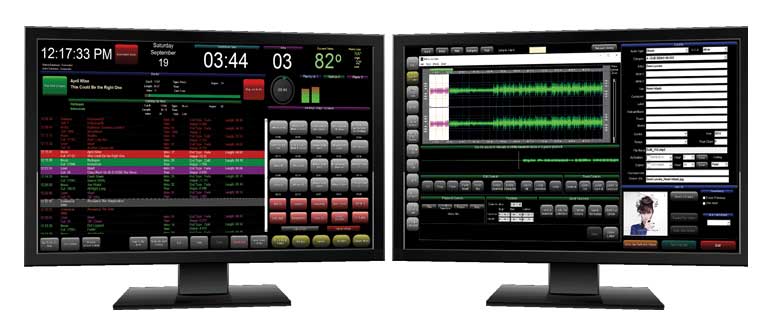It’s Monday morning, Labor Day Weekend. As I sit here relaxing and planning the week to come, I wonder how many people who complain about computer voice tracking are complaining about it today? Not many I would guess. Not today because you get to spend the day at home with your family and friends thanks to technology.
It wasn’t long ago when the biggest challenge for the Holiday weekend was finding enough people to staff the Radio station for the weekend. People worked longer shifts to spread the workload out over several days so everyone could get some time off. You had to keep track of who worked what during the last Holiday weekend just to be fair. There is no doubt that the technology of voice tracking on the computer is a welcome advance, when it works in our favor.
I also don’t see too many people complaining about the technology when they want to go out back and have a smoke. The computer sure comes in handy then too.
So what are we to make of all this consternation about how technology is ruining the Radio business.
To write the best selling book, Good to Great, Jim Collins and his research team spent five years studying great companies (defined as those generating sustained outstanding stock returns), narrowing down the universe of American business to a mere handful of stars. He then asked executives from this select group to identify the top-five factors that contributed to their success. Most surveyed didn’t mention technology at all. Those who did ranked it fourth out of five factors. “Given that we live in a technology world, this was really surprising,” says Collins. “You could draw the conclusion that technology basically doesn’t play a role in excellence.”
But that would be the wrong conclusion. “Regardless of what they said, every single one of the companies had become a pioneer in the application of technology,” he says. “On the one hand, they hardly place any emphasis on it, yet on the other hand, there is no question they were pioneers in the application of technology.”
When Collins set out to explain this, he discovered that organizational greatness always came first. “If you’re fundamentally mediocre going to worse,” he says, “other people applying technology can be a further accelerator of your own demise. If you’re a good company going to great and want to stay there, technology can become an accelerator once you’ve made that leap, but it cannot cause it by itself.”
Rather than ask “What is the role of technology in building great companies?” The real question should be; “How do those who build great organizations think differently about technology?” That is especially true when it comes to technology and the Radio business.
Instead of bashing technology as dumbing down the Radio business or blaming technology as the reason for less local content, the future Radio SuperStars should be embrassing technology to produce an even better product than ever before.
Instead of complaining about the technology, why not use the technology to make sure that every single break you produce is absolutely perfect. So many of the breaks today on Radio are nothing more than “that was and this is” commentary. Use the technology to create some extra time for “Show Prep”, yes the one thing that can make a significant difference in the quality of programming. The reason the big stars are big stars is they take as much time to prepare their show as it does to broadcast their show. They don’t just go on the air and ad lib. They take time to prepare for their show. They prepare many of the bits in advance in order to make sure that what comes out of the speakers is absolutely the best possible product.
The David Letterman Show isn’t broadcast “live”. It is recorded in front of a “live” studio audience. They have the opportunity to cut out the jokes that fall flat. They have a chance to redo the key components and keep the best ones for broadcast. Just like a national TV show, local Radio is “show business”. Local Radio hosts should take a page from the David Letterman Show and use the technology they have on hand to produce a quality program.
It is after all, all about the “listener experience” isn’t it?
Why not start recording all of the calls that come into the studio. Save the ones that are requesting a song. Save it on the computer. When it’s time to play that song, play the recording of the caller making the request. Even though the call may have come in hours, days or even weeks before, the listeners thinks to themselves, “wow, that guy called and they played his song. Isn’t that cool?”
Get out of your rut of complaining about the technology and start using the technology to show your audience and your employer you know how to create a great show. Don’t cry about “live and local” when you sit there in the studio with all of the request lines on hold so you don’t have to be bothered by “your listeners”.
This is a turning point for your future in Radio The programming folks who can use technology to extend their programming content will be the ones that survive and flourish. Most national Radio shows you hear are heavily “voice-tracked”. Those personalities spend all day long prerecording their show for the following day so that it is as perfect as it can be.






